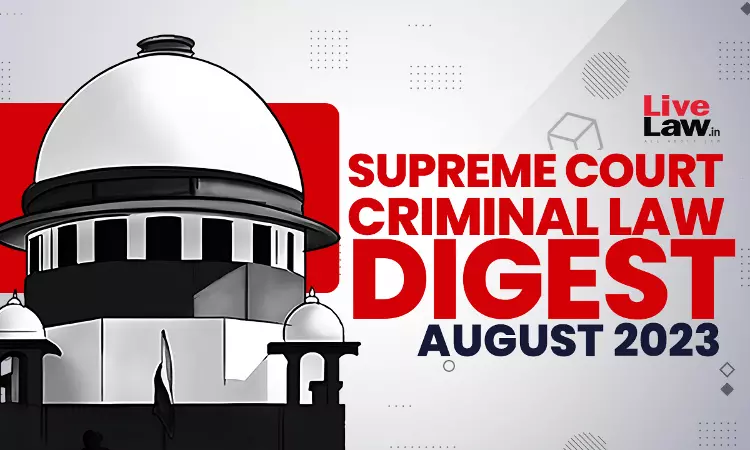- Home
- /
- Supreme court
- /
- Supreme Court Criminal...
Supreme Court Criminal Digest-August 2023
LIVELAW NEWS NETWORK
14 Oct 2023 10:50 AM IST
15 days police custody meant to be applied to the entire period of investigation as a whole : Supreme Court doubts 1992 precedent. V. Senthil Balaji v. State, 2023 LiveLaw (SC) 611 : 2023 INSC 677A Judge does not preside over a criminal trial merely to see that no innocent man is punished. This Court proceeded to observe that a Judge also presides to see that a guilty man does not escape....
Next Story



